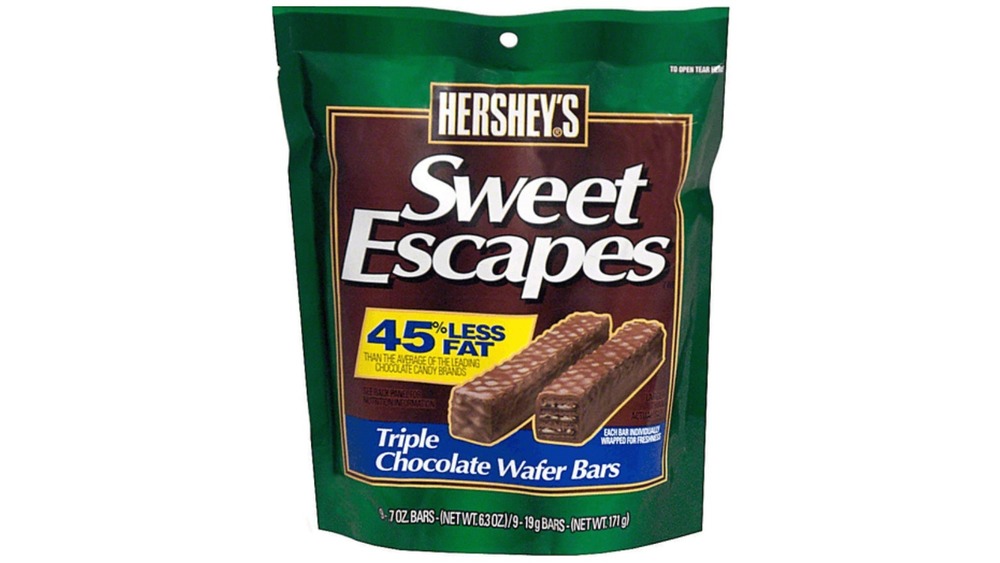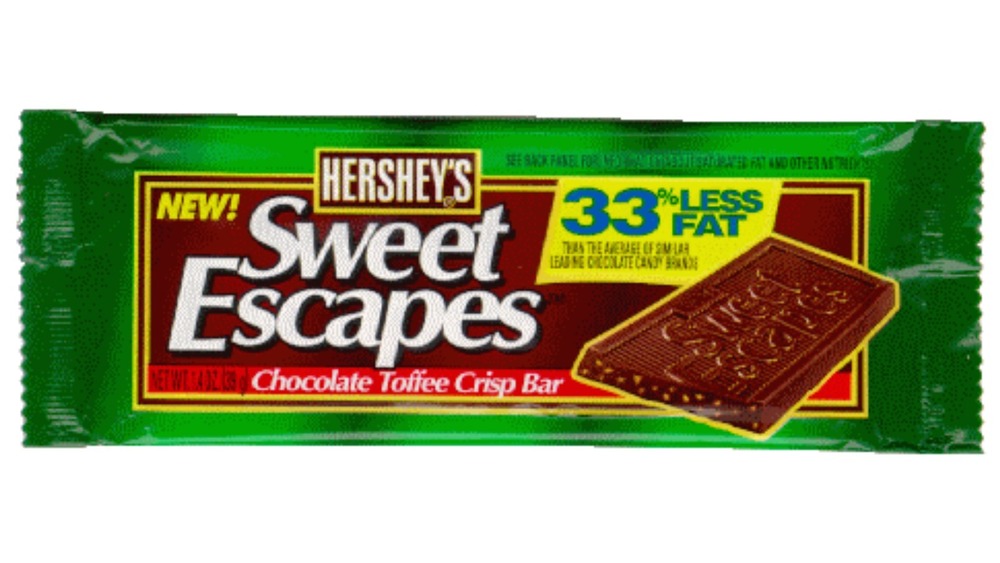Here's Why Hershey's Low-Calorie Chocolates Were Discontinued
Almost every food you can think of has a healthier version on the market. Pizza? Try cauliflower crust. Soda? Diet Coke at your service. Potato chips? There's no shortage of veggie straws, chickpea chips, and pea crisps to satisfy your salty craving. But what about chocolate? The sweet treat is one of people's favorite desserts here in the United States, with Americans eating 100 pounds of chocolate every single second (via The South Florida Reporter). Despite its popularity, however, it remains anything but a diet-friendly food.
That's not for lack of trying, though. In 1996, Hershey's released Sweet Escapes, which were smaller than the average candy bar and claimed to have 45 percent less fat. Sounds like something Americans would (literally) eat up, right? Unfortunately, despite the company's high hopes for the success of its lower-calorie treat, Hershey's Sweet Escapes were pulled from shelves some three years later, in 1999. Here's why the "healthier" chocolate failed.
It was a fad that flopped
Through Sweet Escapes, Hershey's learned the hard way that the whole "healthy" chocolate fad was just that: a fad, which ended as quickly as it began. In the beginning, things looked promising for the popular candy company, with sales of Sweet Escapes starting off strong right out of the gate. Customers were giving the crispy bars high marks. "It was very satisfying, small but mighty," one fan told Deseret News, while another described the low-fat chocolate as a cross between a Kit-Kat and a Bar None.
But the better-for-you candy craze didn't last for long. In the same article from Deseret News, some customers complained that the bars were "lousy," didn't taste as good as the real thing, and cost too much to be worth the lower calories and fat count. Supermarket News reported that the market just wasn't there — most people with a craving for something chocolate-y weren't likely to be satisfied by a diet alternative. As a result, Hershey's discontinued the line in 1999.

